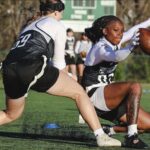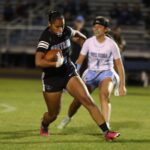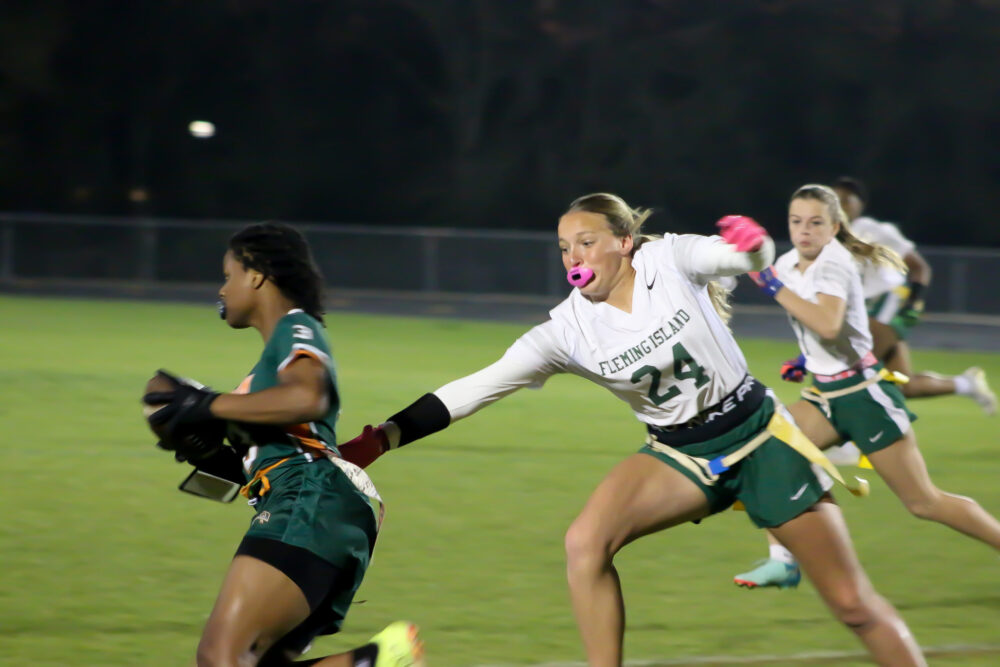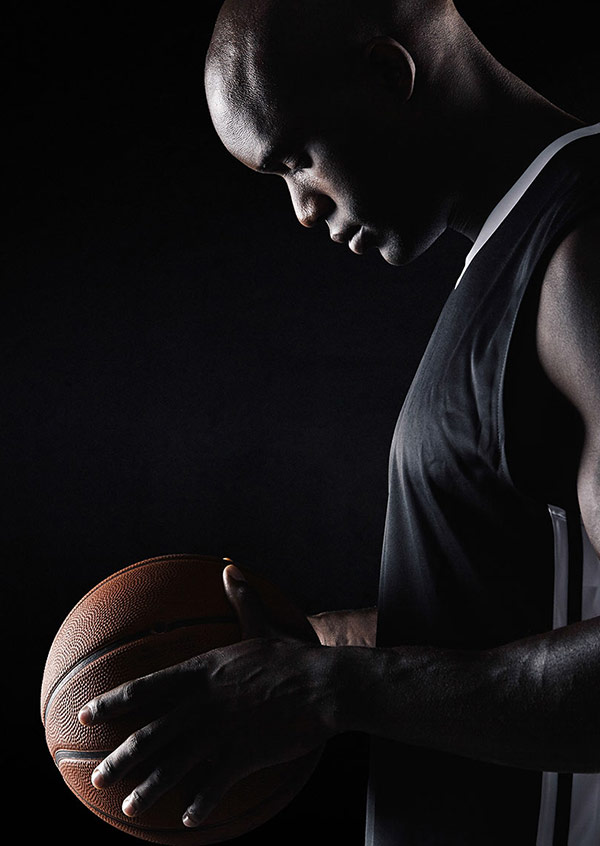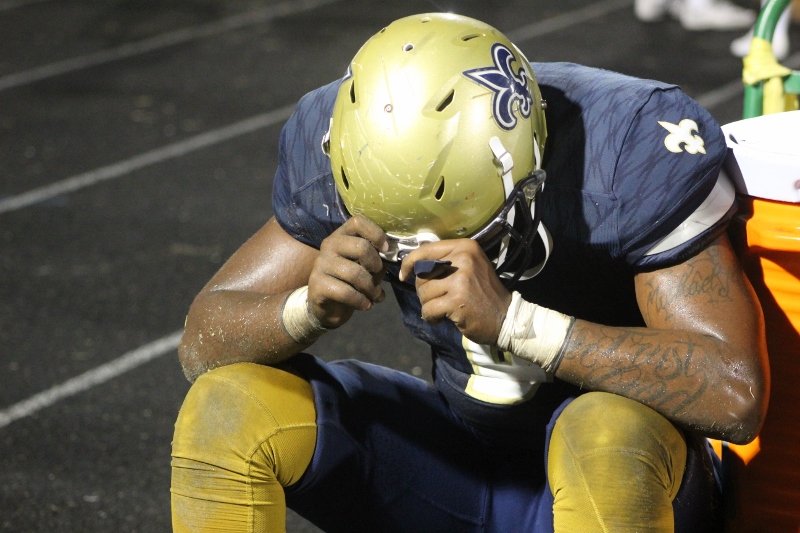
As the excitement and adrenaline fade away after a big game, many athletes find themselves dealing with an unexpected opponent: post-competition blues, or “post-competition depression.” In fact, it’s common for athletes to feel some emptiness or letdown after reaching the peak of intense training and competition (Hammond et al. 2013). If any of those symptoms sound familiar, you’re not alone. Understanding the psychology behind post-competition blues and learning strategies to deal with it can help you carry a positive outlook, set new goals, and look forward to your next challenge.
What Causes Post-Competition Blues?
Post-competition blues are caused by a combination of physical, emotional, and psychological issues. The intense focus and energy put into preparation leads to an emotional high during the competition. When the game is over and that emotional high is gone, it can leave you feeling depressed (Doherty et al., 2016).
After your next game ends, you may feel an unfamiliar emotional void. This void may feel like the end of a roller coaster or walking out after watching an action-packed movie. It leaves you feeling lost and as if you don’t have a goal to achieve. Here are a few of the specific factors that contribute to post-competition blues:
Emotional Investment: Athletes put a great deal of physical effort into their sport, but they also invest their emotional energy. The end of a competition, especially a meaningful one, can trigger a withdrawal of this emotional investment, leading to a void (Hammond et al.)., 2013).
Goal Achievement: Pursuing a goal, whether it’s winning a championship, reaching a record, or achieving a personal goal, creates drive and purpose. Once that goal is achieved or falls out of reach, you may struggle with feeling lost, aimless, or depressed (Russell, 2022).
Identity Shift: Athletes often tie their personal identity to their sport and competitiveness (Henderson, 2020). When the season ends, and the need for constant competition is gone, you may question your identity outside of sport. It has been suggested that the more someone links their identity to being an athlete or playing a sport, the higher their risk is of developing depression (Antoniak et al., 2022; Park et al., 2023).

Strategies for Coping with Post-Competition Blues
Dealing with post-competition blues can be overwhelming, but you can use coping strategies to overcome these feelings. These strategies aren’t only about reducing the emotional lows of post-competition blues. Think of them as the key to turning this challenge into personal growth.
Reflect and Celebrate: First, acknowledge and validate what you’re feeling. Then, give space to reflect on achievements, no matter how large or small. You should celebrate your hard work, dedication, and accomplishments made throughout eason. Creating a journal to reflect on the highs, lows, successes, and areas for growth is a great exercise that can help you feel accomplished and provide closure.
Set New Goals: Consider putting your energy into exciting goals that inspire you. Whether the goals are academic achievements, skill improvement, fitness, or personal development, having clear direction can reset motivation. Try breaking larger goals into smaller, more manageable steps. This approach will make progress easy-to-see and create a sense of achievement.
Maintain Structure: While you may not train as hard after the season has ended, you can still build physical activity into your routine. Consider going on a walk or run, working out at the gym, or playing another sport. Maintaining a sense of structure and routine, along with setting new goals, will give you purpose and direction.
Diversify Interests: You can also explore and develop interests outside your sport. Engaging in activities that stimulate their curiosity can help create a well-rounded self-identity and reduce the impact of a singular focus on sports.
Maintain Support: Teammates, coaches, family, friends, and other connections form your support network, and it’s important to keep those connections. It may be through check-ins, team gatherings, or shared hobbies, but maintaining the connections and support is essential. The relationships built over the season should continue to be a source of support and motivation after the games and competitions are over.
Rest and Recovery: The physical and mental stress created by an intense season demands rest and recovery. Injuries and burnout may be a key predictor of depression in athletes (Kuntz, 2022). Taking a break doesn’t take away from the dedication to your sport. You should use your time in the post-season to try out exercise, relaxation, and self-care that you may not have had the chance to explore while preparing for practice and competition.
Seek Professional Help: If the feelings symptoms of post-competition blues last for longer than two weeks, you should consider seeking guidance from a teacher, guidance counselor, or mental health counselor. Professional mental health support will provide tools and strategies for managing this difficult time.
Conclusion
Post-competition blues are a common and challenging part of a student-athlete’s life. However, understanding the psychological roots of the issue and learning coping strategies can help you turn this time into a chance for growth and new goals.
References
Antoniak, K., Tucker, C., Rizzone, K., Wren, T. A., & Edison, B. (2022). Athlete identity and mental health of student athletes during COVID-19. International Journal of Environmental Research and Public Health, 19(24), 17062. https://doi.org/10.3390/ijerph192417062
Doherty, S., Hannigan, B., & Campbell, M. J. (2016). The Experience of Depression During the Careers of Elite Male Athletes. Frontiers in Psychology, 7. https://doi.org/10.3389/fpsyg.2016.01069
Hammond, T., Gialloreto, C., Kubas, H., & (Hap) Davis, H. (2013). The Prevalence of Failure-Based Depression Among Elite Athletes. Clinical Journal of Sport Medicine, 23(4), 273–277. https://doi.org/10.1097/jsm.0b013e318287b870
Henderson, L. (2020, January 6). Athletes struggle to find purpose, Identity after sports. Colorado Springs Gazette. https://gazette.com/news/athletes-struggle-to-find-purpose-identity-after-sports-special-report/article_ea000d90-220f-11ea-b1ac-9f79e1310dd8.html
Kuntz, L. (2022, June 1). On thin ice: Competitive sports & youth mental health. Psychiatric Times. https://www.psychiatrictimes.com/view/on-thin-ice-competitive-sports-youth-mental-health
Park, A. L., Furie, K., & Wong, S. E. (2023). Stronger athlete identity is a risk factor for more severe depressive symptoms after musculoskeletal injury in pediatric athletes: A systematic review. Current Reviews in Musculoskeletal Medicine, 16(5), 220–228. https://doi.org/10.1007/s12178-023-09828-0
Russell, E. (2022, February 20). “A Deep Depression After the Olympics.” The Challenges Facing Athletes at Home. NPR. https://www.npr.org/2022/02/20/1081945134/a-deep-depression-after-the-olympics-the-challenges-facing-athletes-at-home




